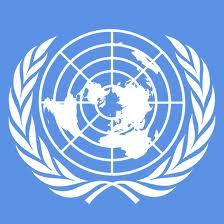International law is a set of rules that governs relations between different nations. Most international laws are based on prior consent of the participating governments. It serves as both a pre-commitment strategy and a way of fending off coordination problems. There are three types of international law: public, private and supranational. Public international law concerns treaty relationships and global agreements amongst nations. An example of this is the Kyoto protocol. Since there is no international court who could produce a punishment on those who breach the law, the international laws are generally enforced by different means such as self-enforcing norms. An example is that the enforcement of someone breaking a free trade agreement is just to allow the victim to also enact forms of protectionism against the lawbreaker. Obviously, this is not a perfect system. This is because there is no overarching sovereign authority to enforce the law in the traditional way that domestic laws are enforced. In contrast, private international law governs conflicts between private people rather than nations. It decides on which jurisdiction should hold the power over a certain situation. For example, it decides where someone should be tried for online piracy (country of the server? Origin of the pirated good? Country of the 'pirate'? etc).
Image Source: Wikimedia Commons
© BrainMass Inc. brainmass.com June 30, 2024, 9:20 am ad1c9bdddf

